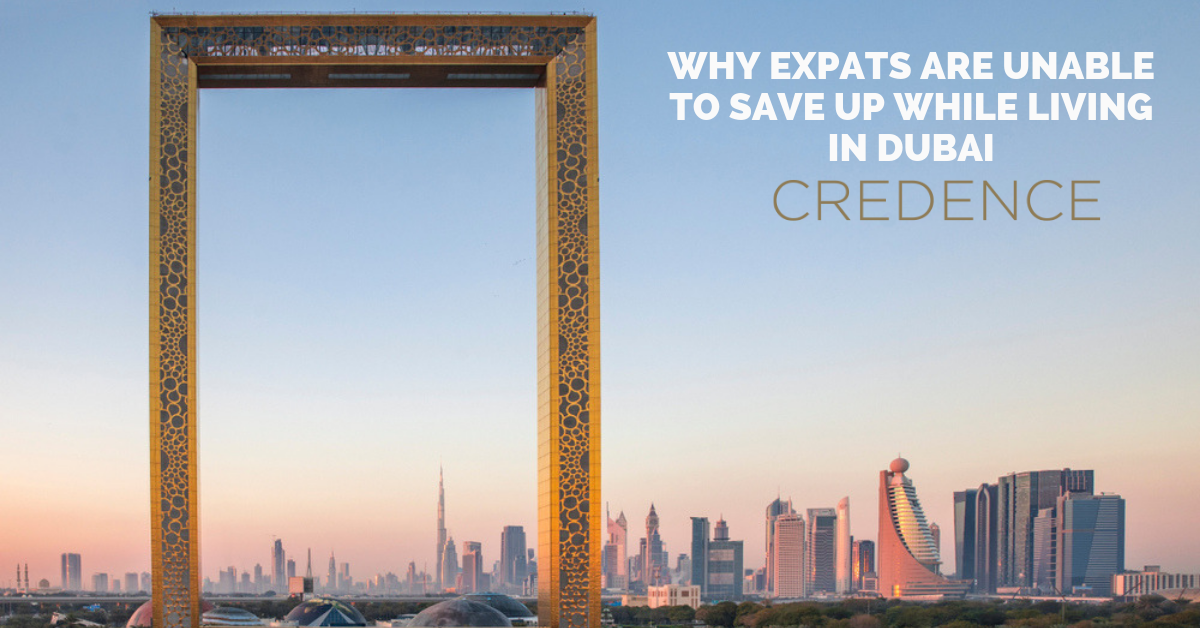Why Expats Are Unable to Save Up While Living in Dubai
Saving and investing money is key to providing yourself with security in an unpredictable future. It can provide an emergency buffer, fund a large purchase such as a house, and can yield an income stream in retirement. It can also increase your peace of mind, assist you in becoming financially independent, and ensure that your money is working hard for you.
As Dubai is a city of pure consumerism, the fact that individuals do not save enough is sadly the truth of the matter. It has been reported that up to 85% of expats living in the region are not saving enough for their future.
This is something that needs to be changed, so we’ve put together a few of the reasons why saving in Dubai (and other large cities) is becoming increasingly difficult and provided a few tips to help you along the way.
1. Consumption
Dubai is stereotyped for its lavish lifestyle, and that is no coincidence. Although it may be tempting to spend a large portion of your income on fancy dinners and nights out, this will undoubtedly damage your potential to save. Most people faced with this dilemma are in their 30s and 40s, a time at which the amount that you save can make or break the bank in retirement. By cutting back on living expenses and investing leftover money, you can significantly increase your future prosperity through the wonders of compound interest.
2. High Interest Debt
It can be difficult to put money away if you are constantly bombarded with credit card debt and interest payments. Before saving, it is often better to eliminate high interest debt, which can cost hundreds or even thousands of dirhams every month. A savings account with an annual interest rate of 1% pales in comparison to the average credit card interest rate of 20%. This means that the money lost through high interest debts significantly outweighs the benefits of saving. If you find yourself with debts that are stopping you from saving, we recommend that you talk to a financial planner.
3. High Expenses
Around the world, middle class life is now 30 percent more expensive than it was 20 years ago. In Dubai, this figure is likely even higher. Where the living cost is comparable to that of living in London, having a strict budget is essential. Not only will a budget help ensure that you don’t spend money that you don’t have, it will also help you to save. By factoring in an amount to save/invest each month, you can ensure that you have money put aside to help fund your future goals.
When creating a budget, look for variable expenses that you can reduce or eliminate, and ask yourself if there is anything you spend money on that you could eliminate and apply towards
savings. Alternatively, if you really can’t cut down on expenses then consider finding another income stream through something such as a part time job.
4. Spending to Cope with Stress
Building on the previous point, people often deal with stress by purchasing unnecessary items. Otherwise known as emotional spending, this can reduce the amount of money available for necessary goods and savings. To curb overspending, try to implement a week in every month that you must refrain from making unnecessary purchases.
5. Lack of Financial Targets
Finally, in the fast paced, consumerist Dubai lifestyle, it can be difficult to focus on long-term financial goals. Without motivation, whether it be for financial independence or a big purchase such as a house or a car, saving will likely feel like a chore. To counteract this, you must set yourself goals that mean you have something to look forward to. Start off small with something like a holiday, and once you have gotten into the habit of saving move onto bigger things.
To summarise, here are some top tips to get you into the habit of saving:
– Set financial targets and calculate your net worth every few months by adding up all your assets and subtracting any debts. Knowing your net worth can give a great indication of your financial wellbeing, and also provide an incentive for you to save/invest.
– Save unexpected bonuses (known as windfall income) and have your money work for you so that you can earn an extra bit of income without putting in any additional effort. Initially, build up three to six months’ worth of expenses in an easy access savings account for an emergency fund. These accounts often provide interest rates as low as 1% annually, but it is a good starting point. Once you have built up an emergency buffer, it is time to invest any left-over money in the stock market. This is where the magic happens, as you can expect to earn between 5-8% annually when averaged over a long period. Ensure that you have received professional advice before investing.
– Create a budget that factors in an amount to save/invest each month. Really try to cut back on non-essential items, and instead put that money towards increasing your net worth.
If you work at it, your financial situation will likely improve over time. You have nothing to lose by saving – and the future you will be forever grateful. Contact one of our friendly team today and make the first steps towards a financially secure future.

